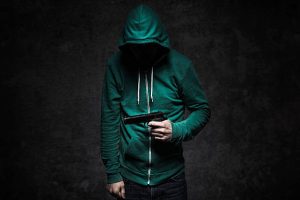
Wet Willies is a frozen daiquiri bar and restaurant concept that is franchised throughout the Southeast with 14 locations. The concept is simple: provide frozen alcoholic and non-alcoholic drinks/daiquiris, as well as food, to the public. One such Wet Willies bar is located in Buckhead, the uptown district in Atlanta considered to be one of the major financial and commercial centers in the southeastern United States. This particular Wet Willies location is popular and frequented by young African Americans in Atlanta.
If you have never been to a Wet Willies, it is similar to a Fat Tuesday or a Pineapple Willy’s, where the available frozen drinks are lined up in see through metal tanks in a row behind the bar. Some of these frozen concoctions have catchy monikers that aim to indicate the strength of the alcohol (i.e. grain alcohol) in the drink. Having personally been to such an establishment, it is easy to become unknowingly inebriated from the sweet frozen libations over a short period of time depending upon your consumption.
On August 3, 2013, according to an AJC article, a young woman was at the Buckhead Wet Willies with her sister and perhaps, other friends. An unknown male came up to this woman and attempted to lift her up by her waist several times. However, the woman continuously told the man to stop. At some point, the man was successful in lifting her up. Unfortunately, the man dropped the woman on her head and fell on top on her. Consequently, the woman was unable to move her arms or her legs on the floor. She was transported by an ambulance to Atlanta Medical Center where she was treated for paralysis and other injuries. Three days later, the woman’s sister reported the incident to the Atlanta Police Department and the investigation is ongoing with zero suspects.
The question remains as to what options the innocent victim may have against the assailant and/or the Wet Willies franchise. Simply put, if the man is identified, then the victim may file suit against him for compensation for her bills, injuries, pain and suffering, and perhaps punitive damages under O.C.G.A. 51-12-5.1 (if the facts indicate that the man’s actions showed “…willful misconduct, malice, fraud, wantonness, oppression, or that entire want of care which would raise the presumption of conscious indifference to consequences.”
Continue Reading

 Atlanta Personal Injury Lawyer Blog
Atlanta Personal Injury Lawyer Blog



